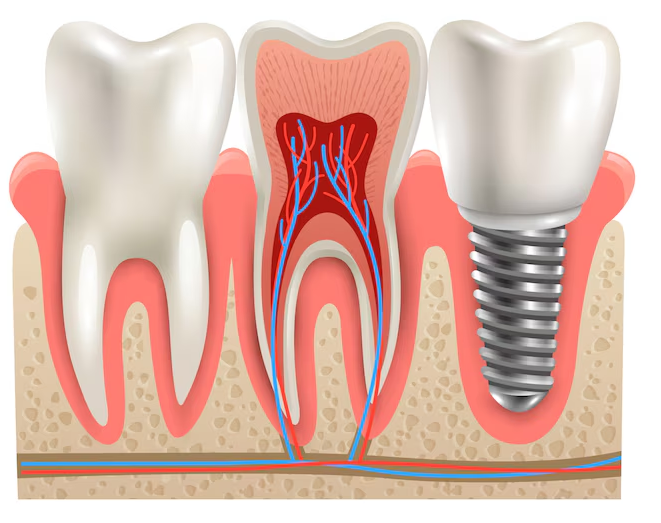Dental implants have revolutionized the field of dentistry, offering a permanent solution for missing teeth that look, feel, and function just like natural teeth. If you're considering dental implants but have questions, you've come to the right place. In this comprehensive FAQ guide, we'll cover everything you need to know about dental implants, from what they are to how they're placed and maintained.
1. What are dental implants?
Dental implants are artificial tooth roots made of titanium or titanium alloy that are surgically placed into the jawbone beneath the gums. Once in place, they provide a stable foundation for replacement teeth, such as crowns, bridges, or dentures.
2. How do dental implants work?
Dental implants work by fusing with the jawbone through a process called osseointegration. This creates a strong and durable bond that allows the implants to support replacement teeth just like natural tooth roots.
3. Who is a candidate for dental implants?
Most people who are in good general health and have enough bone in their jaw to support an implant are candidates for dental implants. However, factors such as gum health, smoking, and certain medical conditions may affect eligibility. A consultation with a Dentist in Coventry to determine if dental implants are right for you.
4. What is the dental implant procedure like?
The dental implant procedure typically involves several steps, including:
- Initial consultation and treatment planning
- Surgical placement of the implant into the jawbone
- Healing period (osseointegration), during which the implant fuses with the bone
- Placement of the abutment (connector) onto the implant
- Attachment of the replacement tooth (crown, bridge, or denture) to the abutment
5. How long do dental implants last?
With proper care and maintenance, dental implants can last a lifetime. This makes them a durable and cost-effective solution for replacing missing teeth.
6. What are the benefits of dental implants?
Some of the key benefits of dental implants include:
- Improved appearance and self-confidence
- Enhanced ability to eat and speak
- Preservation of jawbone and facial structure
- Long-term durability and reliability
7. Are dental implants painful?
While the dental implant procedure involves surgery, most patients report minimal discomfort during the process. Your dentist or oral surgeon will use local anesthesia to numb the area and may prescribe pain medication to manage any post-operative discomfort.
8. How much do dental implants cost?
The cost of dental implants can vary depending on factors such as the number of implants needed, the complexity of the case, and your location. While dental implants may have a higher upfront cost compared to other tooth replacement options, their long-term benefits often make them a worthwhile investment.
9. How do I care for dental implants?
Caring for dental implants is similar to caring for natural teeth. This includes brushing and flossing regularly, attending regular dental check-ups, and avoiding habits that can damage the implants, such as smoking.
10. Are there any risks associated with dental implants?
While dental implants are generally safe and successful, like any surgical procedure, there are some risks to consider, including infection, nerve damage, and implant failure. However, these risks are rare, especially when implants are placed by an experienced dental professional.

